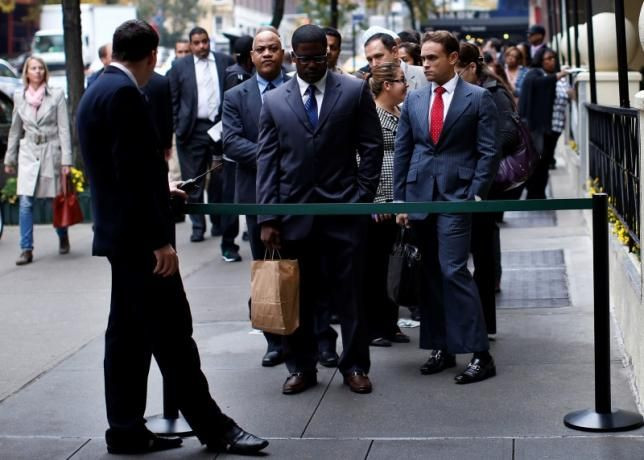Friday's Stock Market Open: US Equities Open Slightly Higher Despite Disappointing December Jobs Data, Slow Wage Growth

KEY POINTS
- Nonfarm payrolls rose by only 145,000 in December, below expectations
- The economy added 2.1 million jobs in 2019, down from 2.7 million in 2018
- Asian markets closed mixed
U.S. stocks traded mixed on Friday as traders mulled a disappointing December jobs report, while buoyed by a new trade deal with China and new sanctions on Iran.
The Dow Jones Industrial Average dropped 79.48 points to 28,877.42 while the S&P 500 slipped 0.32 of a point to 3,274.38 and the Nasdaq Composite Index climbed 6.37 points to 9,209.80.
All three indexes closed at record highs on Thursday.
Secretary of State Mike Pompeo and Treasury Secretary Steven Mnuchin unveiled new sanctions on Iran’s metal exports and on eight senior Iranian officials in retaliation for Iran firing missiles at U.S. targets in Iraq.
Nonfarm payrolls rose by only 145,000 in December while the jobless rate remained at 3.5%, the Labor Department said on Friday. Economists had expected 160,000 new jobs created.
Average hourly earnings climbed by just 2.9%, below projections for a 3.1% increase.
For the year as a whole, payrolls increased by 2.1 million, or an average of 176,000 per month, the slowesr pace since 2011. In 2018, 2.7 million new jobs were added.
“It’s a real question why wages haven’t accelerated more,” said Jay Bryson, acting chief economist at Wells Fargo. “Part of it may be just due to the underlying fact that inflation expectations among folks just remain very, very low.”
“The December jobs report was a little softer than expected but not so much so as to stoke big worries about the US consumer and the health of the overall economy,” said Alec Young, director of global markets research at FTSE Russell. “Although both readings were slightly below expectations and the recent trend, neither is overly alarming by itself.”
Wholesale inventories in the U.S. fell by a seasonally adjusted 0.1% in November from October. Economists surveyed had expected no change over the month. Inventories had increased in October by 0.1%, unchanged from the prior estimate.
Meanwhile, Chinese officials are expected sign the first phase of a trade agreement with the U.S. at the White House next week. President Donald Trump said that he might wait until after the 2020 presidential election to achieve phase two of the trade deal.
The House of Representatives passed a resolution on Thursday to limit Trump’s war powers against Iran one week after U.S. drones killed top general Qassem Soleimani.
Turkey's unemployment rate slipped to 13.4% in October 2019 from 13.8% in September, the state statistics agency showed Friday. The jobless rate reached a decade high of 14.7% in January last year.
Bank of France Governor Francois Villeroy de Galhau said the European Central Bank should adhere to a symmetrical inflation target.
“If growth recovers and even if inflation overshoots a little bit, the Fed is probably going to let it run, and that probably goes for other central banks, but if growth weakens they could cut again,” Patrik Schowitz, global strategist at JPMorgan Asset Management told Bloomberg. “You have this asymmetric set-up and that’s quite helpful for markets.”
Overnight in Asia, markets were mixed. China’s Shanghai Composite slipped 0.08%, while Hong Kong’s Hang Seng gained 0.27%, and Japan’s Nikkei-225 rose 0.47%.
In Europe markets closed lower, as Britain’s FTSE-100 slipped 0.14% while France’s CAC-40 and Germany’s DAX each fell 0.09%.
Crude oil futures slipped 0.44% at $59.30 per barrel and Brent crude edged up 0.05% at $65.40. Gold futures rose 0.42%.
The euro rose 0.13% at $1.1119 while the pound sterling fell 0.08% at $1.3056.
© Copyright IBTimes 2024. All rights reserved.



















